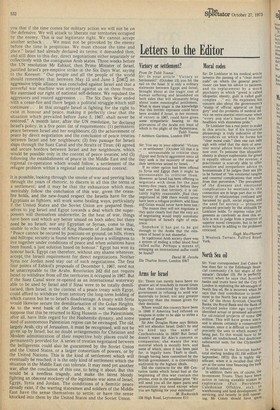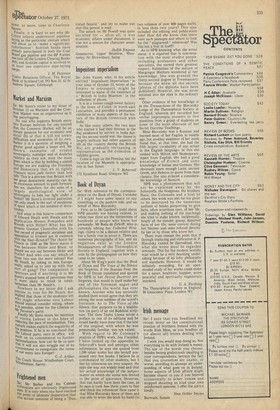North Sea oil
Sir: Your correspondent Joel Cohen is less than fair to the Edinburgh financial community ('A fair share of the miracle': October 13). He is perfectlY correct when he says that Scottish banks and trusts have led the City of London in exploiting the advantages of North Sea oil. He is incorrect when he says that their contribution to investment in the North Sea is not substantial. Of the three Scottish Clearing Banks, the Royal Bank and the Bank of Scotland some time ago together identified actual or promised advances for oil-related projects of some £90 million. This will have grown since, and is almost certainly a conservative estimate, since it is difficult to identify precisely the uses to which money IS being put. To this would have to be added an undisclosed, but doubtless substantial sum, for the Clydesdale Bank.
In relation to the Scottish bank?' total sterling lending (E1,150 million In September, 1973) this is highly Mg' nificant, when it is recalled that theY are at the same time financing the bulk of Scottish industry.
In addition, there are, of course, the Investment Trusts. They have been active in taking sizeable stakes in exploration (Pict Petroleum, Caledonian Offshire, etc), warehousing and land development, In servicing, and latterly in drill operating. Mr Cohen should have spent Qpiel8tator October 27, 1973.
some, or more, time in Charlotte Square.
Finally, it is hard to see why Mr ohen selects underwater pipeline aYing as the particular venture which Will allow us to ' make a significant Contributions. Scottish banks have already participated in both the Coal Board gas pipeline and the BP Forties• one (not all the London Clearing Banks dId); and Scottish capital is involved in at least one expensive pipe-laying barge.
/. M. Paterson Public Relations Officer, The Royal Bank of Scotland Ltd, PO Box 31, 42 St Andrew Square, Edinburgh



































 Previous page
Previous page